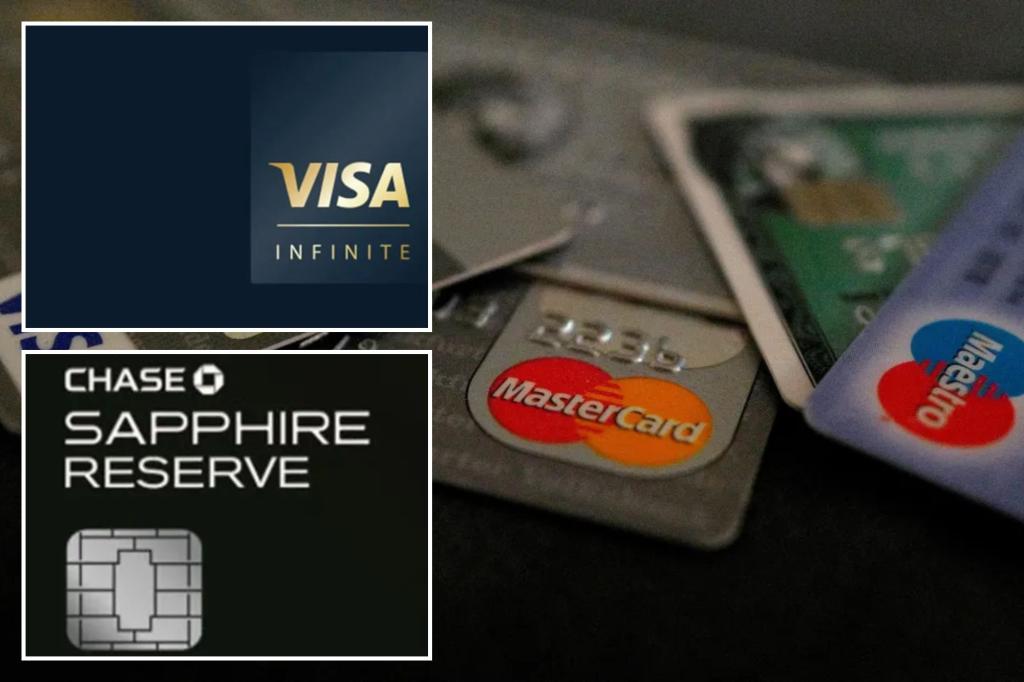The $30 billion settlement that was reached on Tuesday between merchants and credit card giants Visa and Mastercard could make it more expensive to use premium credit cards.
The rate tables that were revealed as part of the settlement show that customers who use cards like Visa Infinite, Chase Sapphire Reserve and Mastercard World Elite will need to shell out more in swipe fees that merchants are charged by the credit card companies.
A $100 transaction at a restaurant would result in swipe fees of $2.60 for a diner using a Visa Infinite card as opposed to $2.10 for someone using a regular Visa rewards card, according to an analysis by Bloomberg News.
Visa Infinite charges an annual fee of up to $525 in exchange for benefits and perks including travel discounts, gym memberships, dining offers and subscriptions to entertainment providers.
The Chase Sapphire Reserve, which comes with a $550 annual fee, includes a welcome offer of a $300 travel credit as well as 60,000 bonus points after spending $4,000 on purchases within the first three months.
Tuesday’s settlement will allow merchants to charge consumers more for using the elite cards — although some may choose not to for fear of a backlash, according to experts.
Merchants have long complained that Visa and Mastercard have required them to accept all of their credit cards at checkout.
The credit card companies say that the elite accounts encourage shoppers to buy more than they would ordinarily pay due to the enticements and incentives.
But merchants have long complained that they were not permitted to charge elite card holders extra.
Merchants have accused Visa and Mastercard of charging inflated swipe fees, or interchange fees, when shoppers used credit or debit cards, and barring them through “anti-steering” rules from directing customers toward cheaper means of payment.
Swipe fees typically include small fixed fees plus a percentage of total sale amounts, and average about 1.5% to 3.5% per transaction according to Bankrate.com.
Under the settlement, Visa and Mastercard would reduce swipe rates by at least four basis points — 0.04 percentage points — for three years, and ensure an average rate that is seven basis points below the current average for five years.
Both card networks also agreed to cap rates for five years and remove anti-steering provisions.
Merchants will have more discretion to offer discounts, or impose surcharges on cards with higher interchange fees.
Many already warn customers at checkout they will pay more using cards instead of cash.
The fee rollbacks and caps alone are worth $29.79 billion, according to court papers, and Visa estimated that small businesses comprise more than 90% of the settling merchants.
Visa and Mastercard denied wrongdoing in agreeing to settle.
In separate statements, Visa’s North American president Kim Lawrence said the accord addressed “true pain points” identified by small businesses, while Mastercard General Counsel Rob Baird said it gave businesses “substantial certainty.”
With Post wires


